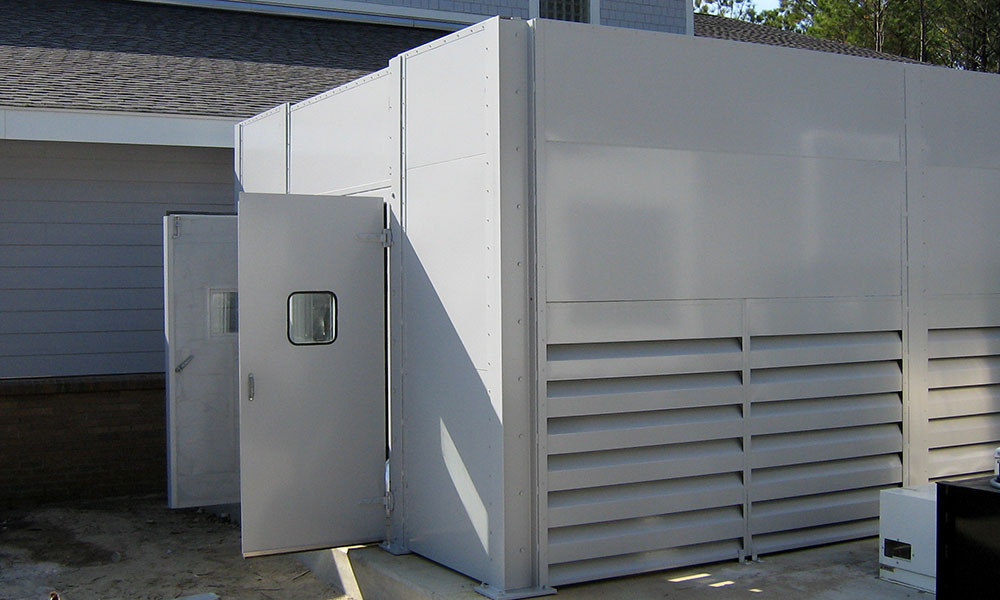If you’ve spent any amount of time managing a construction site, you’ll know how quickly a perfectly planned schedule can go sideways. One day, everything’s ticking along nicely, the next you’re dealing with an unexpected complaint from a nearby office or an order to stop work because of noise levels.
It’s one of those headaches no one really talks about until it happens, and by then, it’s already eating into your budget and timeline.
That’s where sound barriers for construction projects save the day (pun intended). These unassuming panels can make the difference between a smooth, on-time project and one riddled with complaints, fines, and delays.
Why Noise Is More Than Just an Annoyance
Every construction site makes noise, that’s just part of the job. But when that noise spills beyond your site and starts interrupting people’s lives, you’ve got a problem.
Councils take noise pollution seriously, and if your site exceeds the permitted decibel limits (especially during unsociable hours), you could be looking at:
- Complaints from nearby residents or businesses
- Site inspections or stop-work orders
- Restricted working hours
- Fines and, worse, reputational damage
And that last one can sting for years. Once a company gets known locally for being “that noisy contractor”, it’s not easy to shake off.
Construction sound barriers help prevent that chain reaction. It keeps the noise where it belongs, inside the site, and buys you peace of mind that your team can keep working without constant interruptions.
So, What Exactly Are Sound Barriers?
Think of sound barriers as giant noise-absorbing shields for your site. They’re usually made from heavy-duty, weatherproof materials designed to block or absorb sound from machinery, vehicles, and tools.
They’re modular too, which means you can put them up quickly, move them around as the project evolves, and reuse them on future sites. Some even double as site hoardings, so you get a bit of privacy and security as a bonus.
They don’t just make the neighbours happy — they make your site calmer and more productive. Less noise means easier communication, less shouting over machines, and fewer mistakes caused by misheard instructions.
How Sound Barriers Protect Your Budget
Let’s talk money — because that’s what it usually comes down to.
1. Fewer Fines and Legal Hassles
The simplest way to stay on the right side of the law is to stop the noise before it leaves your site. Investing in sound barriers shows councils you’re taking proactive steps to control environmental impact.
That can save you from expensive fines or temporary shutdowns that come from breaching local noise regulations. In some cases, having barriers in place can even help fast-track permits or smooth over community consultations.
2. No More Costly Delays
Anyone who’s managed a construction schedule knows how fragile timelines can be. Once you’re forced to pause work, even for a few days, it sets off a domino effect: subcontractors get rescheduled, materials sit idle, and budgets balloon.
By keeping your site compliant and complaint-free, construction sound barriers help ensure you stay on track. They let your team work longer hours where permitted and reduce the risk of mid-project stoppages.
3. Improved Productivity
Noise doesn’t just bother people outside the site — it wears down the people working on it, too. Prolonged exposure to high noise levels causes fatigue and concentration issues.
With barriers in place, the environment becomes noticeably more manageable. Crews can focus, communicate better, and get things done faster, which all adds up to time saved (and we all know time is money).
A Noise-Controlled Site Is a Safer Site
There’s a safety angle here that’s easy to overlook. Construction sites are already full of potential hazards, and noise makes them worse. When workers can’t hear alarms, instructions, or each other, mistakes happen.
By using a construction sound barrier, you cut down on unnecessary background noise. That helps ensure safety briefings are heard clearly, radios work better, and everyone stays alert to what’s happening around them.
You might not see that benefit on your financial report, but it’s one of the smartest long-term investments a contractor can make.
Building Goodwill with the Community
We all know construction can be disruptive, especially in urban areas. Neighbours tend to tolerate it more when they see you’re making a visible effort to minimise the impact.
Sound barriers show exactly that. They send a clear signal that you care about the community, that you’re doing your part to keep things bearable while you get the job done.
Some companies even take it a step further by branding their barriers or using them to display project updates. It’s a small gesture that can turn what might have been complaints into appreciation.
Thinking Long-Term
Sound barriers might start as a “temporary” fix, but many companies now treat them as part of their long-term kit. They’re reusable, easy to store, and can be redeployed from site to site.
That not only saves money in the long run but also strengthens your company’s reputation for professionalism and environmental awareness.
When clients and partners see that you’ve already got noise management covered, it builds trust and trust leads to repeat business.
Wrapping Up
Construction will always be noisy, there’s no getting around that. But how you manage that noise can make or break your project’s success.
A construction sound barrier might not look like much, but it’s a practical, cost-effective way to protect your budget, your schedule, and your reputation all at once.
It’s one of those investments that pays off. So, next time you’re planning a project, don’t wait for the first complaint to roll in, get ahead of it. Your team, your neighbours, and your bottom line will thank you.






